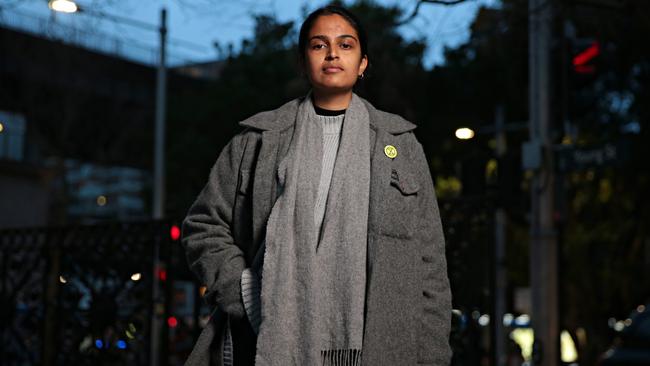Universities’ free speech ‘crisis’: students
A survey shows university students are affected by pressure from peers and teachers when it comes to expressing their opinions.

University students are preventing their peers from voicing opinions on controversial issues on campuses, according to more than half of those who took part in a free-speech survey.
In a new Institute of Public Affairs online survey of 500 Australian students, 59 per cent agreed that “sometimes students are prevented from voicing their opinions on controversial issues by other students”, while 31.4 per cent agreed they had been made to “feel uncomfortable” by a university teacher for expressing opinions.
At the same time, 69.2 per cent said their universities encouraged free speech.
Renee Gorman, national manager of IPA youth program Generation Liberty, said the research meant there was “a freedom of speech crisis” on Australian campuses that administrators were afraid to confront. “That 59 per cent of students who feel that they are prevented from speaking by other students is deeply concerning,” Mrs Gorman said.
She believes some disturbing context lies behind the high proportion of those who agreed that “my university encourages freedom of speech”.
“I think that they think, ‘yes, my university pays lip service to free speech, but you know there’s a culture on campus that is actually restrictive’,” she said, pointing to the “activist” 2.2 per cent who disagreed with the statement that at university students should be exposed to different views even if those views were challenging or offensive (81.8 per cent agreed).
“It points to what I’m saying — there’s this kind of cultural element … activists pretty much just make everyone want to be quiet.”
Hersha Kadkol, National Union of Students ethno-cultural officer, who is on the left of university politics and a seasoned campaigner, also feels the pressure. In her experience, “left-wing activists encounter resistance from right-wing student groups, some of which — reflecting an incredible lack of self-awareness about free speech which they claim as their cause celebre — often call on campus authorities to shut down left-wing activities on campus”.
Universities Australia CEO Catriona Jackson disputed there was a crisis and stressed the report by former High Court chief justice Robert French this year found no evidence of one. “Every university leader works daily to ensure this remains the case,” she said.
Mrs Gorman said “one of the reasons we did this research was that we kept seeing vice-chancellors and bureaucrats saying there’s no free speech problem on campus”. “They need to get off their high horse and actually start facing the issue and talking to students,” she said.
Ms Kadkol was also highly critical of the official line. “The real battle for free speech on campus is between left-wing student activists and university administrations who are determined to protect the political status quo and the profit-driven university,” she said.
Earlier this year, University of NSW security directed Ms Kadkol and others to stop distributing flyers as part of the Cancel Trimester campaign against the new academic calendar, claiming the vice-chancellor’s permission was needed. The university later apologised. Other barriers emerged in the survey conducted in April by Dynata Market Data & Analytics. There was agreement from 45 per cent that teachers sometimes unnecessarily insert political content into courses; 47 per cent felt more comfortable expressing views on social media than on campus; and 41.4 per cent sometimes felt unable to express their opinion.



To join the conversation, please log in. Don't have an account? Register
Join the conversation, you are commenting as Logout